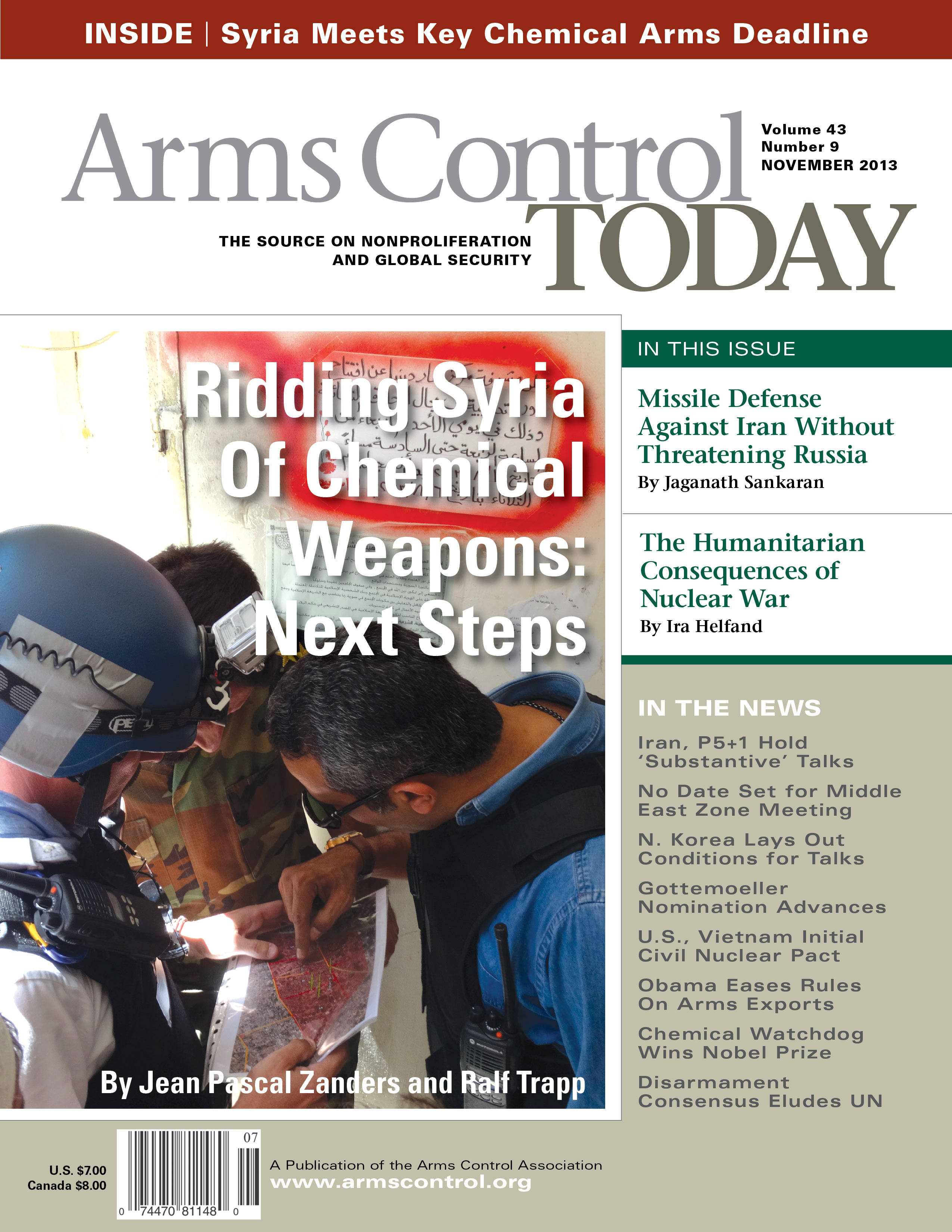Kelsey Davenport
North Korea indicated last month that it may be willing to suspend nuclear and ballistic missile tests if abandoned talks with a group of five countries over Pyongyang’s nuclear activities resume.
In an official commentary released by the Korean Central News Agency (KCNA) on Oct. 9, Pyongyang suggested that it would make this commitment after the talks restart, “not as a precondition” to resume negotiations. Satellite launches would also be exempt, KCNA reported.
The so-called six-party talks, which include China, Japan, Russia, South Korea, and the United States, began in 2003 and continued intermittently until 2008, when North Korea said it would no longer participate.
A South Korean official said in an Oct. 28 interview that North Korea made a similar offer at an informal meeting with former U.S. officials in Berlin in September, according to his briefing on the meeting. The South Korean government was not represented at the meeting, nor were any current U.S. officials present, he said. North Korean Vice Foreign Minister Ri Yong Ho represented Pyongyang.
The official, however, expressed doubt about the sincerity of North Korea’s offer, saying that North Korea “often reneges” on verbal and written agreements.
In February 2012, North Korea and the United States reached a deal, known as the “Leap Day Agreement,” in which Pyongyang agreed to a moratorium on nuclear and missile tests in exchange for food aid from Washington. The agreement broke down after Pyongyang attempted to launch a satellite in April of that year. The United States said that satellite launches were part of the moratorium on missile launches, but North Korea disagreed, and the agreement collapsed. (See ACT, May 2012.)
At a Sept. 26 press briefing, Cho Tai-young, deputy minister for public relations in the South Korean Foreign Ministry, said that it is “difficult to say” if the informal meeting, which brought together government officials from North Korea with former U.S. officials, “will immediately lead to the resumption” of the six-party talks, but that South Korea considers it an “occasion to exchange various opinions.”
When asked about the meeting and North Korea’s offer there, State Department spokeswoman Marie Harf said during an Oct. 10 briefing that “the onus” is on North Korea to “take meaningful steps” to live up to its commitments to “abandoning all nuclear weapons and existing programs.”
Harf said she would not “outline specifically what that might look like.”
North Korea committed to denuclearization in a 2005 joint statement with the other members of the six-party talks.
Reactor Restart Confirmed
The South Korean official also said that his country’s National Intelligence Service reported to the National Assembly on Oct. 8 that North Korea had restarted a reactor at the Yongbyon nuclear site.
Satellite imagery led independent U.S. analysts to conclude that North Korea was restarting the reactor in September, but neither Washington nor Seoul confirmed the initial reports. (See ACT, October 2013.)
The reactor produces plutonium, which, when separated, can be used for nuclear weapons. Experts estimate that it would be about 18 months before the first new plutonium produced by the reactor would be separated and available for weapons.
In April, North Korea announced its intention to restart the reactor. It had been shut down and disabled in 2007 as a part of Pyongyang’s negotiations over its nuclear weapons program with the other participants in the six-party talks. Prior to the shutdown, the reactor produced enough nuclear material for six to 12 warheads.
During an Oct. 9 press briefing, Harf declined to comment on reports of the reactor restarting, but reiterated that if Pyongyang has restarted the reactor, it would be in violation of UN Security Council resolutions that require North Korea to halt its nuclear program.
Test Site Activity
Meanwhile, satellite imagery of North Korea’s Punggye-ri nuclear test site indicates that Pyongyang is excavating new tunnels that could be used for future nuclear tests, according to an Oct. 23 analysis published by 38 North, a website run by the U.S.-Korea Institute at Johns Hopkins University.
38 North’s Nick Hansen, a former military imagery analyst, reported two new tunnel entrances at the site. The activities indicate that North Korea is preparing to conduct further nuclear tests, but there are “no signs” that Pyongyang plans to do so “in the immediate future,” he wrote. North Korea conducted nuclear tests in 2006, 2009, and 2013.





